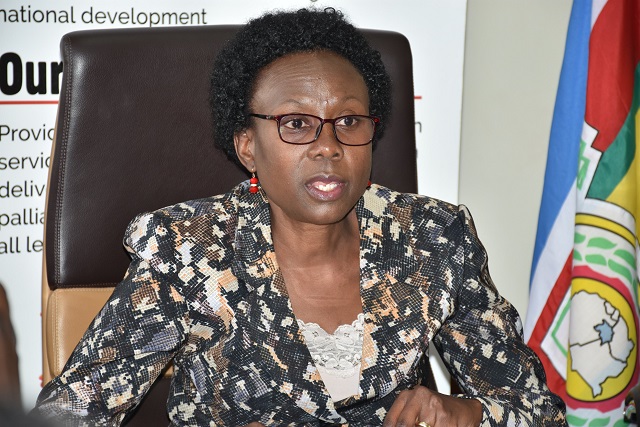
Kampala, Uganda | THE INDEPENDENT | The Minister of Health Dr Jane Ruth Aceng says the Ministry will soon embark on a pilot study to establish how effective Community Health and Extension Workers (CHEWs) are in prevention of disease and timely reporting of outbreaks in the community.
Aceng who doesn’t give details of how many workers will be deployed says despite failed attempts to roll them out previously, they are still the highest-ranking option they have when it comes to sensitization of the population about diseases that can be easily prevented and yet still claim thousands of lives.
She says they are starting out with high need districts in East and Northern Uganda.
While we already have Village Health Teams (VHTs) that are trying to do this kind of work, she says they have not been facilitated enough to make reasonable gains to keep diseases at bay.
She said instead of putting some money into disease prevention and strategies like the CHEWs that can help in achieving this, she says government has instead been focusing on clinical care.
For her, to realize what empowered and educated communities can do when it comes to disease prevention one ought to look at how Uganda has managed to keep Ebola away because villages near the border have been educated on how to spot key signs of the disease.
However, while the Minister is putting a case for having CHEWS, the idea to have them deployed last financial year was reversed by government following complaints that there was no money to pay them considering that doctors and other trained health workers still had remuneration queries.
Initially, the CHEWS had been allocated Shs3.2 billion in the budget to cater for the initial activities like training and deploying them in selected pilot parishes in Northern and Eastern Uganda districts.
The plan was to recruit 1500 CHEWs deploying two per parish. But, this was halted shortly after the proposal was made. Now the minister says a batch of CHEWS has been trained and a policy which will guide their mandate is complete.
Prof. Francis Omaswa, the Executive Director of African Centre for Global Health and Social Transformation (ACHEST) says it’s a good idea to use CHEWS and that the proposal is not necessarily a new one. He says when still the Director-General of Health Services in the Ministry health, paid community workers were suggested as a solution to solving many of the public health issues the country was facing.
“The design we had proposed was to use local councils where the chairman is made the leader. He would work with an executive of nine members and we said let 30% of these be trained, given uniforms and be given a village health register to keep track of what happens. But donors said we have no money for that let them volunteer”.
For him relying on VHTs who are not paid is not a sustainable strategy because they don’t have mandates and can’t be held accountable. With the strategy of having two CHEWs per parish, the Ministry of Health says the country will need a total of 15,000.
They are expected to be rolled out throughout the country in a period of five years whereby a CHEW will be expected spend 60% of their time in the community and 40% at their Health Center III.
******
URN
 The Independent Uganda: You get the Truth we Pay the Price
The Independent Uganda: You get the Truth we Pay the Price


